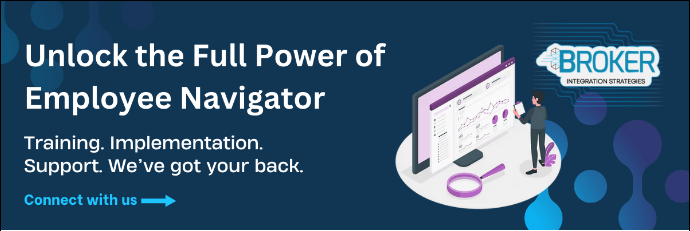Share article
The straight-talk summary
Listening is a true superpower in sales and leadership. When you slow down, pay attention, and really hear what people are saying—beyond their words—you build trust, uncover what matters most, and create better outcomes. Great listening takes energy and practice, but it transforms conversations, relationships, and results.
We all have superpowers, and while this idea may not feel like your style, I think it creates a positive and energizing visual. 🦸 And doesn’t it feel good to name the things we’re really good at?
One of my top superpowers is listening. I’m so good at diving deep with people and listening to their stories that Kevin sometimes asks me if my ears are bleeding! And sometimes, yes, it does feel that way.
I absorb so much in a conversation beyond the words, and I feed on the energy and emotion behind them. I’m insatiably curious, asking a lot of questions and listening to what follows. I pick up on facial expressions, tone of voice, and body language. I sense confidence, hesitation, excitement, or uncertainty. I notice what’s said and when something’s being held back. Depending on the moment, I’ll dig deeper or follow up later to give things time to simmer.
People often call me a business therapist, sometimes a psychic. Someone even affectionately called me a witch! 😂 I’ll take all of it.
Listening is an active skill
Tracking what someone is really saying, reading their energy, and staying with them through the entire message takes active effort. It demands mental attention and emotional awareness, which is not always easy, especially when conversations are complex or emotionally charged.
Trying to rush through a conversation, reacting too quickly, or shutting down altogether causes people to feel dismissed, and they stop contributing.
There’s a curious listening technique that I’ve labeled “aggressive listening” that shuts me down real quick. You may recognize this: the person who looks at you intently, doesn’t break eye contact, nods, and constantly says, “yeah, yeah, uh-huh, uh-huh.”
When I find myself with someone who engages like this, I assume they know everything I’m saying, so I just stop talking. That may not be the case, but I find that “listening” style so off-putting, I don’t want to engage.
Calm, intentional listeners create a different experience. They help people feel seen and valued, which opens the door to trust and can quickly build momentum.
This is how I get the title of “business therapist.”
When I go into a conversation, I’m all in. I want to know what someone needs in that moment. Are they processing something out loud? Looking for a sounding board? Hoping for advice? Wanting to share a win?
The opportunity to hear people’s stories is a privilege earned by showing up and being genuinely interested.
Sales conversations thrive on listening
The strongest salespeople know how to pay attention because they are genuinely interested. They ask better questions and allow the prospect time to process their thoughts without rushing the conversation.
Data backs this up. Gong Labs reviewed thousands of sales calls and found that top performers talk less than they listen, averaging 43% talking and 57% listening. These reps also consistently hit 120% of their quota.
Not surprising.
It’s a pretty basic formula: When people feel heard, they’re more willing to share. They feel safer exploring options, and they’re quicker to make decisions because the conversation is aligned with what they actually care about.
Leadership depends on listening
It’s the same in leadership. When leaders listen with care and consistency, people respond with engagement and trust, and this shows up in the data, too.
There are direct correlations between listening and trust, team performance, and job effectiveness.
- In a study of over 4,000 leaders, Zenger Folkman found that those who ranked in the bottom 15% for listening also scored the lowest in trust. On the flip side, those seen as exceptional listeners ranked in the 86th percentile for trustworthiness.
- Managers trained in active listening saw a 30% increase in employee satisfaction, and their teams became more collaborative and more productive, with performance rising by as much as 25%.
- At an individual level, listening drives nearly half of a leader’s effectiveness. A study from George Washington University found that listening skills account for about 40% of job performance in leadership roles.
While listening may fall in the “soft skills” category, it’s proven to be core to the job and the company’s results.
Listening well means honoring your limits
Yes, I’m a huge proponent of active listening and engaging.
BUT.
That kind of listening is really hard. It requires energy and takes presence that just can’t happen when your mind is scattered or you feel worn out. When you’re drained, you can’t focus or connect in the same way, and people notice.
After a day of listening, I get tired. In fact, I get really worn out and need to shut down and step away from Zoom and the conversations. My brain cannot take any more conversational inputs.
Take the time you need, so you can to be present when you are there. Step away from calls and reschedule when you can give people your full attention. Don’t try to phone it in.
Listening is a skill you can develop
My listening style defines how I connect with people. It’s shaped how I lead, coach, and build relationships.
If you’re not great at listening, you’re likely missing critical cues and not building trust, which is a problem in any role, but especially in sales and leadership. Listening is a skill you can practice and refine.
Most of us reading this are leading teams and clients or selling to prospects, and in these roles, effective listening can literally change your outcomes: improve conversations, deepen trust, and speed up decisions and results. And let’s not overlook the most basic benefit: Good listening makes people want to work with you.
Friendor ad sponsored by Broker Integration Strategies. Click above to visit their site.
Content originally published by Q4intelligence
Published by unge255

